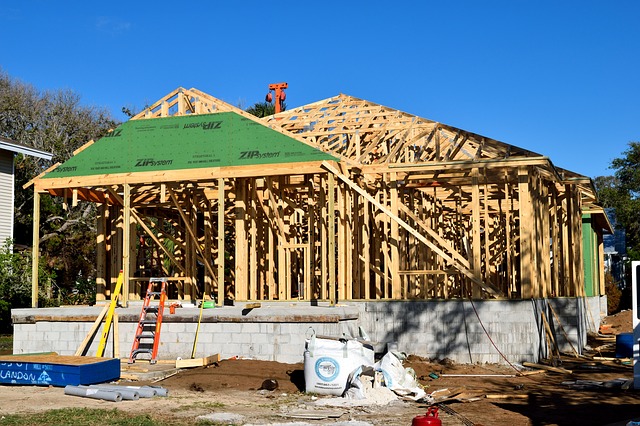
David Hakimi
By David Hakimi
This article is part two in a two-part series on how to sell newly-constructed homes. Read part one here.
In my last post, I discussed the buyer’s agent’s duties in a new construction transaction and the sales process. Now I’d like to touch on hurdles clients may face buying new construction, as well as contracts, financing, and agent compensation.
Selling new-construction isn’t without its own set of unique hurdles, all of which can prove to be sufficiently challenging.
In most states, challenges arise largely from the differences between the builder’s contract and the normal re-sale contract that agents are more familiar with. Many states allow builders to circumvent the normal re-sale contract provided by your state’s real estate commission or REALTOR® association, and substitute a proprietary contract of their own instead. These proprietary contracts are typically crafted by the builder’s attorneys and they normally contain extensive language that heavily favors the rights of the builder. Additionally, a typical builder contract is often 60 to 80 pages long, compared to the 3 to 15 pages found in most states’ resale contracts. A smart agent should always ask the builder’s sales person for a copy of the contract a day or two in advance so that they can carefully read it in its entirety—highlight any crucial dates or clauses that a buyer should be particularly aware of. This will also lead to a much smoother signing once the buyer is present, because you won’t have to read and explain an entire 80-page contract on the spot. Many experienced agents keep a file in their office containing example contracts from every active builder in their area. This allows you to quickly re-familiarize themselves with each builder’s contractual nuances in advance, so you’re prepared when a buyer asks you to go see a that builder’s model homes.
Financing can be particularly tricky when dealing with builder transactions.

@paulbr75, 2017. pixabay.com
Most mortgage lenders typically cannot cost-effectively lock-in an interest rate for more than 90 days in advance of a closing. Therefore, when dealing with an unfinished (or dirt-start) home that likely won’t be completed for 4 to 18 months, this can pose a substantial risk. If a buyer’s debt-to-income ratios barely qualify them to purchase the home at the time it’s contracted, then there’s a risk that they may no longer qualify to buy it at all if mortgage rates increase before they’re eligible to lock-in their rate. Because none of us own a crystal ball to predict which direction the rates may go, it’s always very prudent to make sure your buyers will still qualify even if the rates increase. A good rule of thumb is to make sure they would still qualify even if the rates climb by 1 percent. If not, then they are taking a major gamble buying new-construction. If a buyer barely qualifies for the amount they are trying to spend, then it makes more sense to find that buyer a home that they can close on within the term of their rate-lock. None of us wants to hear the lender tell our buyer that after waiting 13 months, they no longer qualify for enough to close on their new home.
Most builders also have an ownership stake, or affiliated business arrangement of some kind with a lender and a title company. Additionally, most builders will tie their incentives and/or discounts to the requirement of using this lender and title company. While they cannot force a buyer to utilize these service providers, they will routinely withhold discounts and incentives from buyers who insist on using an outside lender or title/escrow company. Often, these incentives are substantial enough that most buyers will comply with this requirement in order not to lose them. Therefore, it is prudent that the buyers understand this in advance, so that it doesn’t cause issues if they are particularly loyal to their current bank or lender.
Make certain you understand exactly how the builder will compensate you for bringing them a qualified buyer.
Builder co-op commissions are often structured differently then re-sale commissions, so you need to be clear on how you’ll be compensated. In most instances, builders only pay a disclosed percentage of the home’s base price, but do not pay any commission on the lot premiums, structural upgrades, landscaping, or design center options. This is important to factor in, because these costs can reach as much as 50 percent of the final price on some homes such as former “model homes.” Make sure you clarify in advance whether a builder pays commission based on the home’s base price, or on the home’s final purchase price. Also clarify the percentage they intend to pay as well. In most cases it’s slightly higher than the percentage paid on a resale to compensate for the fact that we aren’t paid on the home’s entire price. However, in some instances builders do pay on the complete amount, and there are some instances where the percentage paid is slightly higher than the area average for resales. This typically occurs when a development is selling too slowly, the builder has too many completed spec homes in inventory, the market is declining, or the builder is closing out the development. In these instances, selling new-construction can be particularly lucrative!
Make sure your client has never registered in the past while touring model homes without including your name on the registration card.
The builder’s salespeople are tenacious about pressing everyone who enters the model homes to fill out a registration card. Much like an open house on a re-sale, they want to capture the buyer’s information for follow-up purposes. However, those registration cards also serve a more insidious purpose as well. There are questions on the card that ask the buyer how they found out about the development, and whether they are represented by an agent or not. If your buyer previously visited the sales office without you (even if it was before they started working with you) and they didn’t put your name on their care, the builder now has a record of it. If you bring that buyer back later and attempt to register them as your client, the builder may not allow you to. The builders only intend to pay you if they determine that you were truly the procuring cause and initially brought the buyer to them. If they determine that the buyer found them on their own, without your involvement, then the builder will most likely refuse to pay you a commission. So be careful and ask your clients early in the process if they have registered with any builders before hiring you!
As long as you do your homework, the pros outweigh the cons.
Selling new construction can be very rewarding, and it can provide you with precious inventory in a market where re-sale homes are in short supply. If you take the time to tour all the builders’ models in your area, and learn as much as you can about their homes and policies, it will be time well spent. Get to know the sales people and their floorplans, because a solid knowledge of the builders in your area will be a benefit to both you and your clients. Be confident in your abilities and go sell some new homes!
David Hakimi runs the Hakimi Team with Berkshire Hathaway HomeServices Innovative Real Estate in the Denver and Boulder, Colo. market. Connect with David at www.DavidSellsDenver.com or on Facebook, LinkedIn, or Google+.
Comments 20
Newer agents often don’t know what they don’t know – so a concise article like this, covering which information to equip oneself with before dealing with new construction properties is invaluable. Thank you!
Great article with a lot of excellent information for both new and seasoned agents. Thanks for writing it!
You’re welcome Eva! I’m glad you found the article useful!
I too, found this extremely valuable! I am a free reentering agent from resale to new construction, and I’m very excited to be entering this world! Thanks for sharing this wonderful knowledge!
Great set of articles. I am currently putting together a strategy and marketing materials for our entire team. Would love if there was more that could be shared or a course you may put on?
This article gives detail about selling new construction… This article gives some great suggestions on property selling for the rookie agents. I enjoyed reading while going through this article and this is the best link for gaining all the information about it. When you look for same type of great content, like here then check out this dashbuildnz.com also.
A very good piece of information. This will definitely help new real estate agents in home inventory search and selling.
This blog is actually about the rookie agents guide for selling new construction part. This article provides us true and insightful information regarding it. Thank you for making us read this well written article. I am sure many people will come to read this in future.
How do I go about selling a new build contract to someone else, (just for the amount of my earnest money), where they may want to proceed with the build, when I do not?
Thank you for giving us a direct and straight to the point answer! It greatly helped in clearing our confusion.
Thank you again for all the knowledge you distribute, Good post. I was very interested in the article, it’s quite inspiring I should admit.
Your article is quite helpful! I have so many questions, and you have answered many. Thank you!
These proprietary contracts are typically crafted by the builder’s attorneys and they normally contain extensive language that heavily favors the rights of the builder.
I love reading this post. Looking forward to more ideas.
Wish to see much more like this. Thanks for sharing your information
Alturas, Florida is a small town located in Polk County, Florida. While it is not a large city, it is a popular destination for those looking to enjoy the Florida sun and escape the hustle and bustle of city life. As a result, there is a high demand for properties in the area, which makes Alturas, FL property management a valuable service.
I appreciate the reply and have taken my notes
Thanks! The mental image of you writing down notes while reading makes me smile.
You should have included the sensitive parts of this field. The way agents can be trapped, specifically in legal issues.
Pingback: The Rookie Agent’s Guide to Selling New Construction: Part 2 – Vittoria Estate